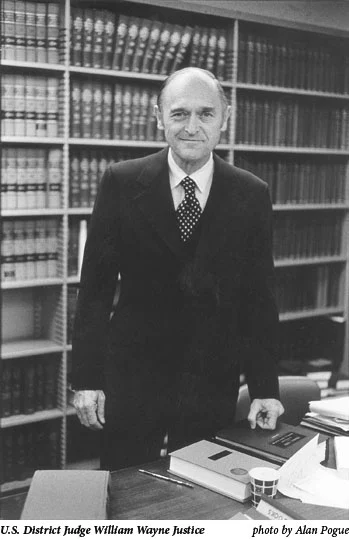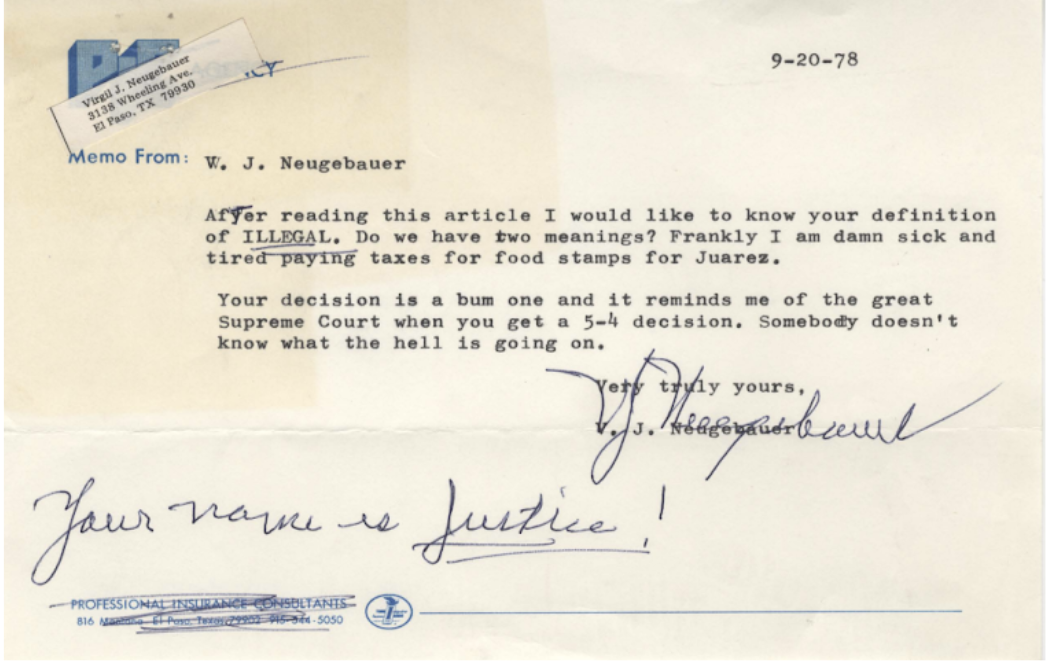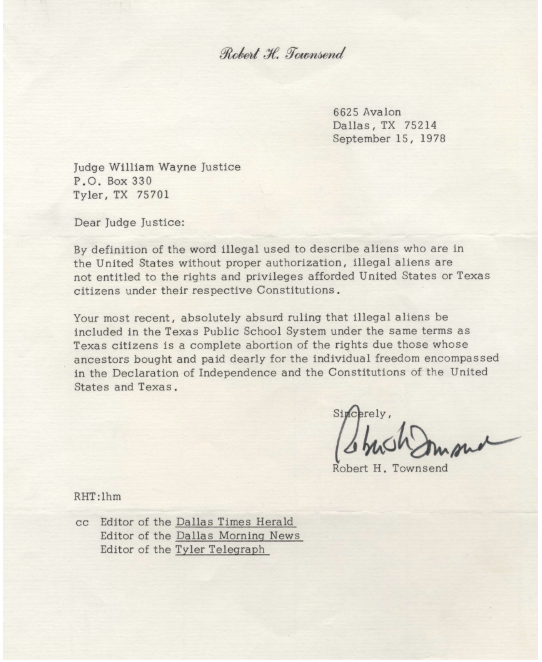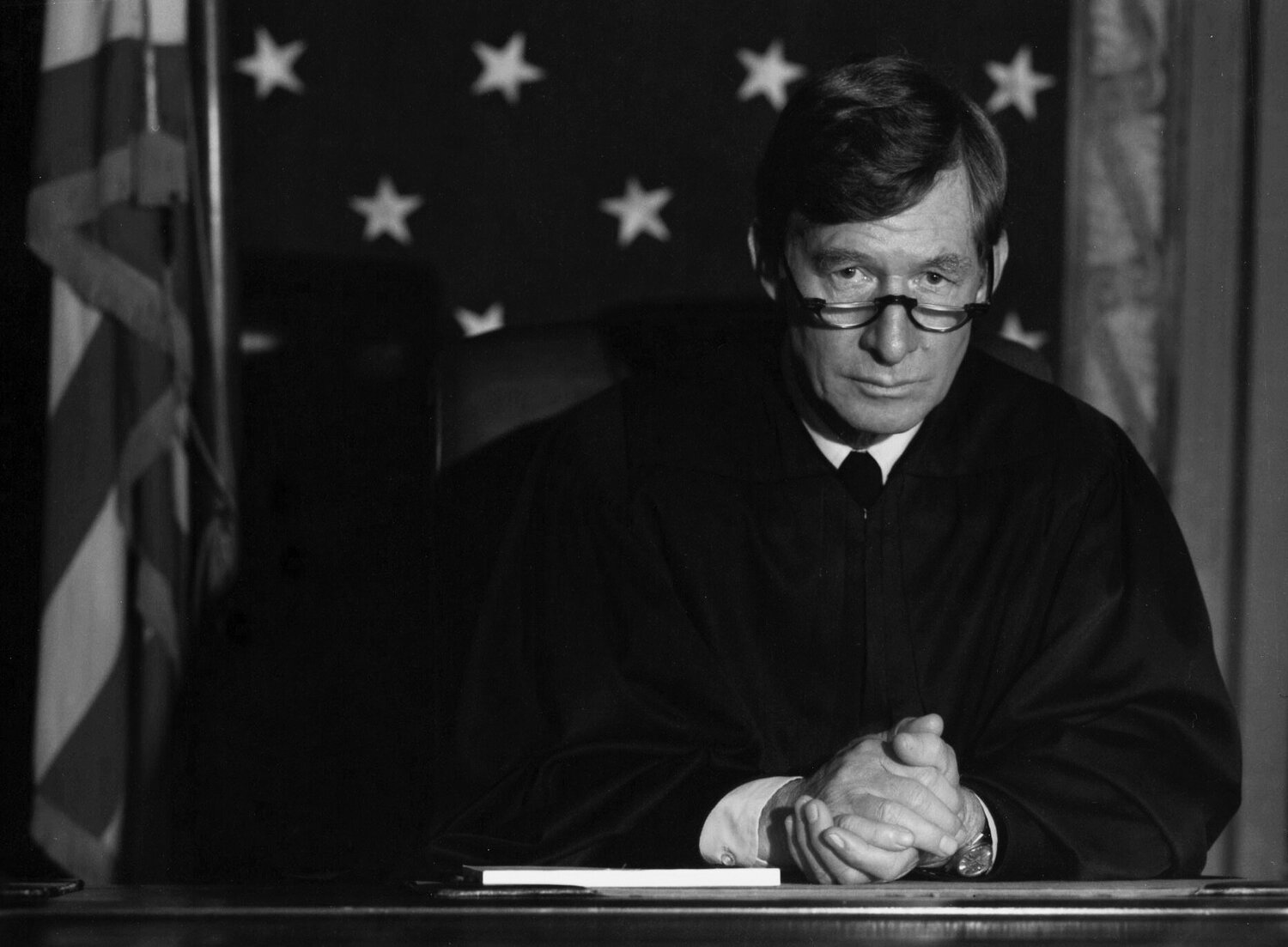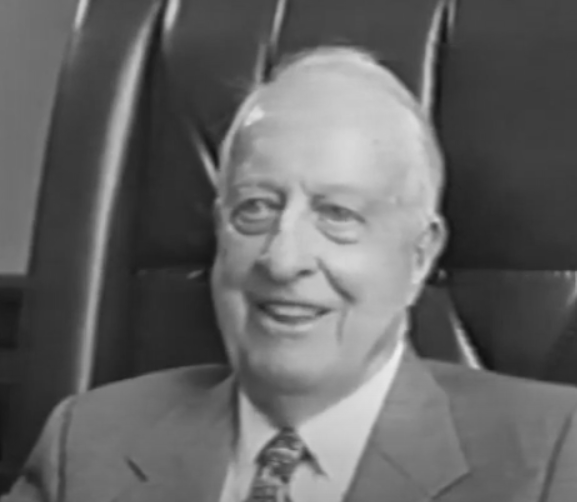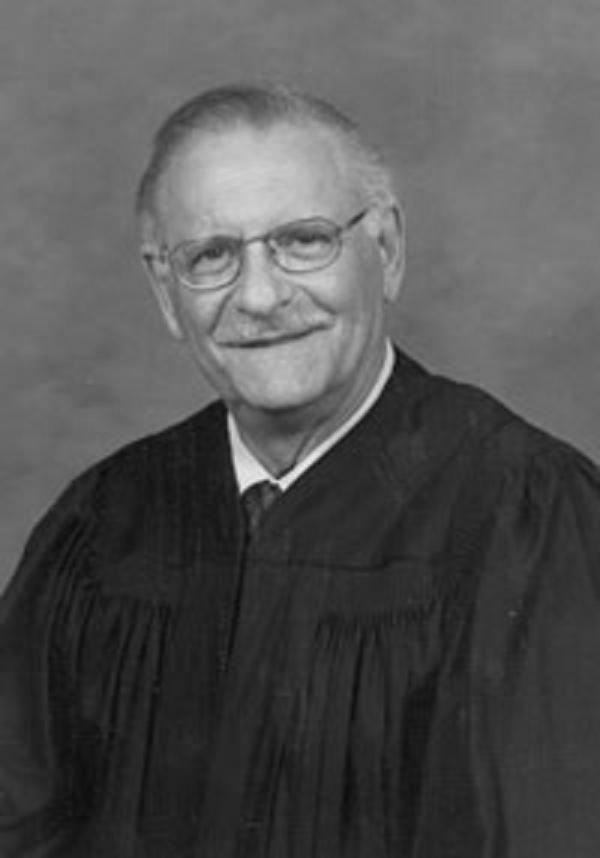On September 6, 1977, MALDEF filed federal class action lawsuit Plyler v. Doe on behalf of four undocumented Mexican families (John Doe) against Tyler ISD and its superintendent, James Plyler. The case challenged the constitutionality of Section 21.031, on the grounds that it violated the Equal Protection Clause of the 14th Amendment, which states:
"[n]o State shall . . . deprive any person of life, liberty, or property, without due process of law; nor deny to any person within its jurisdiction the equal protection of the laws."

